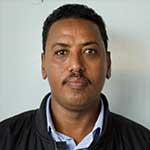
Commentaries | Sep 01,2024
Oct 24 , 2020
By Desalegn Tegabu
Industry players and policymakers are left with limited evidence to make decisions due to a lack of access to research. It is time to consider establishing a national council and a fund that supports institutions in developing research, writes Desalegn Tegabu (MD) (zdesalegn@gmail.com), a senior public health professional.
Research is not like any other intervention - it is the main pillar for the future. However, there is a considerable mismatch between the number and focus of research undertakings, on the one hand, and the need for evidence by managers and policymakers, on the other.
Therein arises a strong need to align research priorities in universities and research institutes with the national development needs of the country. The urgency lies in establishing a mechanism to promote, coordinate, regulate and manage research.
In Ethiopia, with the flourishing of universities and research centres in the last two decades, the number of researchers and their output is on the rise as evidenced by an increase in the number of published articles in PubMed, a biomedical and life sciences journal archive, where cited articles rose from 172 in 2000 to more than 3,188 in 2020.
In addition, research-based postgraduate training programmes are also increasing. The number of PhD candidates enrolled has also increased five-fold over the past decade, having reached almost 4,000 in 2017-18. This is in a country whose higher learning institutions invest under a tenth of their annual budget in research.
However, research activities in most universities are initiated as a purely academic exercise with little to no regard to their policy relevance. It makes a case for the need to align research priorities in universities and research institutes with the needs of industry players and policymakers of the country.
Producing research that is actually utilised requires a congruent effort by both producers and users along with a conducive policy environment. The recommendations of Mulu Nega Kahsay (PhD), renowned researcher and current state minister of Science & Higher Education, in his 2017 article, “The Links between Academic Research and Economic Development in Ethiopia: The Case of Addis Abeba University,” could serve to reduce the research-practice chasm.
He suggested analysing the experience and expectations of the research institutions, research users and the legal and policy environment to unpack the challenge and propose context specific solutions.
Unvaryingly, higher education institutions in Ethiopia suffer from inadequate funding, limited research infrastructure and a scant number of skilled researchers in many disciplines. Furthermore, inefficient administration, poor networking with both internal and external collaborators, lack of demand by research users, and poor policy comprehension of researchers are some of the notorious challenges.
Industry players and policymakers are thus left with limited evidence to make decisions due to lack of access to research, inadequate supply of policy-relevant research and limited capacity and time to absorb academic driven research. Just as bad, the limited effective communication and consultation between both and failure to consider the researchers as strategic partners are major reasons from the users’ side that widen the research-practice gap.
The legal and policy environment, including the legislative and regulatory aspects through which the government oversees universities, the research centres and the users play critical roles to address the disconnect. However, misalignments and passive policies with respect to incentivising research and development have widened the research-to-practice chasm. Furthermore, the government’s failure to keep its promise of allocating one percent of gross domestic product (GDP) to fund research is a serious implementation gap.
To address such challenges and to benefit from research activities, establishing a national research council as suggested by the Ethiopian Academy of Sciences, will be critical. The council will be a national research body to set a systems approach to coordinate, monitor and evaluate the country’s research priorities and strategies. It will also facilitate collaboration and linkages between different research organisations or disciplines.
The council, being a nucleus and interactive system of existing universities and all the sectors, will also be responsible for setting funding and research policy. It will also create opportunities for researchers to access state-of-the-art facilities across the country.
Its value will come in its ability to create a favourable environment for joint agenda setting, communication and translating research outputs into changes in the social, economic and environmental spheres. It will also help to support institutions to develop capacity, mobilise resources for research, and monitor adherence to ethical principles.
One of the most difficult challenges is the lack of funding for a range of research activities in Ethiopia. Central funding is required to procure research supplies to build laboratories, carry out experiments, attend conferences and create linkages with international researchers. The council can address the shortfall through a research fund overseen by its members. This would be critical to playing a central role in establishing centres of excellence and research groups dedicated to a certain problem or issue.
In addition to the government, the council would need to look for contributors - industries, philanthropies and NGOs - for its funding. Reforming research funding toward "strategic" purchasing of research through performance-based activities will also help motivate researchers to produce context-specific output. Building on this would require stimulating a culture of competition among researchers and universities by establishing national rankings to compare performance and drive improvement over time.
PUBLISHED ON
Oct 24,2020 [ VOL
21 , NO
1069]


Commentaries | Sep 01,2024

Radar | Aug 14,2021

Commentaries | Jan 19,2024

My Opinion | Oct 10,2020

Commentaries | Oct 28,2023

Commentaries | Sep 23,2023

Agenda | Feb 02,2019

Editorial | Jan 29,2022

Viewpoints | Mar 02,2019

Radar | Mar 09,2019

My Opinion | 131586 Views | Aug 14,2021

My Opinion | 127942 Views | Aug 21,2021

My Opinion | 125917 Views | Sep 10,2021

My Opinion | 123541 Views | Aug 07,2021

Dec 22 , 2024 . By TIZITA SHEWAFERAW
Charged with transforming colossal state-owned enterprises into modern and competitiv...

Aug 18 , 2024 . By AKSAH ITALO
Although predictable Yonas Zerihun's job in the ride-hailing service is not immune to...

Jul 28 , 2024 . By TIZITA SHEWAFERAW
Unhabitual, perhaps too many, Samuel Gebreyohannes, 38, used to occasionally enjoy a couple of beers at breakfast. However, he recently swit...

Jul 13 , 2024 . By AKSAH ITALO
Investors who rely on tractors, trucks, and field vehicles for commuting, transporting commodities, and f...

Jun 28 , 2025
Meseret Damtie, the assertive auditor general, has never been shy about naming names...

Jun 21 , 2025
A well-worn adage says, “Budget is not destiny, but it is direction.” Examining t...

Jun 14 , 2025
Yet again, the Horn of Africa is bracing for trouble. A region already frayed by wars...

Jun 7 , 2025
Few promises shine brighter in Addis Abeba than the pledge of a roof for every family...

Jun 29 , 2025
Addis Abeba's first rains have coincided with a sweeping rise in private school tuition, prompting the city's education...

Jun 29 , 2025 . By BEZAWIT HULUAGER
Central Bank Governor Mamo Mihretu claimed a bold reconfiguration of monetary policy...

Jun 29 , 2025 . By BEZAWIT HULUAGER
The federal government is betting on a sweeping overhaul of the driver licensing regi...

Jun 29 , 2025 . By NAHOM AYELE
Gadaa Bank has listed 1.2 million shares on the Ethiopian Securities Exchange (ESX),...